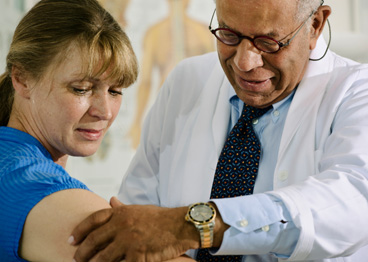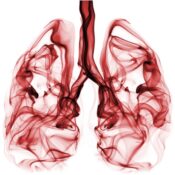Smaller than the eraser on a pencil, scaly areas on your face or hands are easy to ignore. But the sandpaper-like spots—called actinic keratoses (AKs)—can take a nasty turn if left untreated.
“AKs are a direct result of UV damage to cells in the top layer of the skin called keratinocytes, and have up to a 20 percent chance of degenerating into squamous cell skin cancer,” points out cosmetic surgeon and skin cancer specialist Dr. William Beeson, a clinical professor at Indiana University School of Medicine. “That’s why most doctors prefer to treat AKs early.”
Topical treatments such as freezing (cryotherapy with liquid nitrogen spray) or applying prescription drugs (5-fluorouracil [5-FU] or imiquimod) can take care of small areas on the head or hands.
But when larger parts on the body require treatment, many dermatologists are using a newer treatment called photodynamic therapy (PDT) to protect healthy skin cells.
“During PDT, doctors apply a special liquid (5-aminolevulinic acid, ALA) that readily penetrates upper skin layers and is absorbed by precancerous cells,” explains Beeson. “Then, a special type of light is used to activate the ALA, killing abnormal cells without harming normal ones for quicker healing and faster recovery.”
Most people resume their usual activities within 3 days after PDT treatment. In contrast, typical laser therapy vaporizes the entire top layer of skin, leaving the treated area very red for about 9 weeks.
“Studies show that photodynamic therapy treatments actually stimulate new collagen in the skin, and many physicians use this same treatment to rejuvenate skin for an improved cosmetic effect,” adds Dr. Beeson. “It may also be used to treat some teenagers with severe cases of acne.”
Of course, always use sun precautions and sunscreens to prevent skin cancer recurrence.
Become a Saturday Evening Post member and enjoy unlimited access. Subscribe now



